Indonesia Resorts
Design files: Lost Lindenberg, Bali
resorts
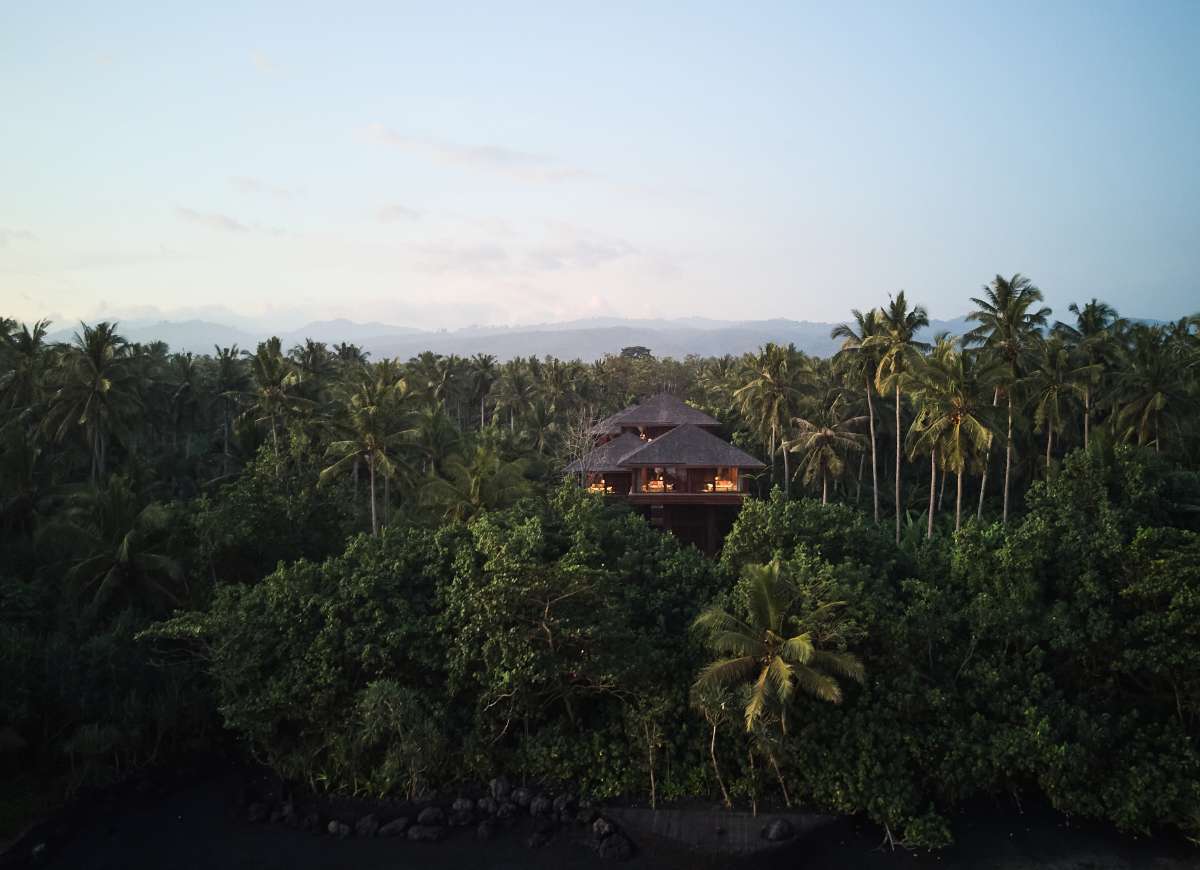
Lost Lindenberg is designed for travellers seeking connection to their environment and to disconnect from the distractions of modern life.

Far away from Bali’s tourist enclaves, Lost Lindenberg is designed for travellers seeking an authentic connection to their environment and a space in which they can truly disconnect from the distractions of modern life.
As a popular holiday destination, for many travellers Bali has become synonymous with vibrantly decorated resorts frequented by influencers, countless sun-soaked infinity pools, and crowded tourist attractions.
Not so at Lost Lindenberg, a decidedly different ‘guest collective’ that opened in July 2022 on the ruggedly beautiful west coast, near the famed surf spot of Medewi.
Lost is the first property outside Europe for Lindenberg, a Frankfurt-based hospitality group that places community spirit, sustainability, culture, design, and a strong social mindset at the centre of its guest proposition.
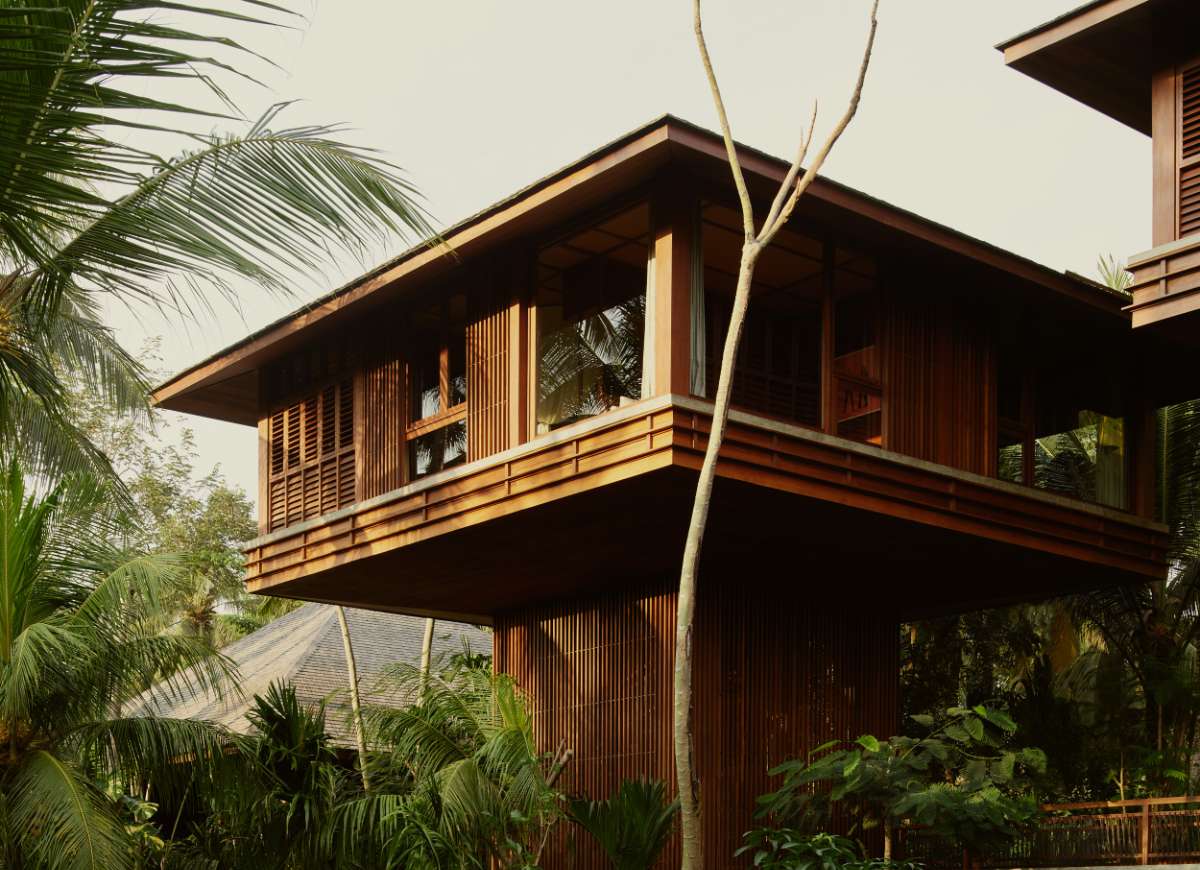
At its Balinese property, the intent is in the name — Lost is a place for guests to feel as though they have escaped the trappings of modern life, to be immersed in remote surroundings, to build connections with like-minded travellers, and to reconnect with the self.
The black sand beaches, lush palm jungles, and wild surf of this lesser-trodden corner of the island proved the perfect spot to bring the concept to fruition, notes Lindenberg Managing Director, Denise Omurca: “The inspiration for this concept was the magic, this sweet, warm melancholy of the location, the black lava sand and the fantastic waves. Not just another rattan-clad honeymoon hotel but, instead, the courage to settle by a wild sea, to embrace surfing while at the same time satisfy the need for urbanity.”
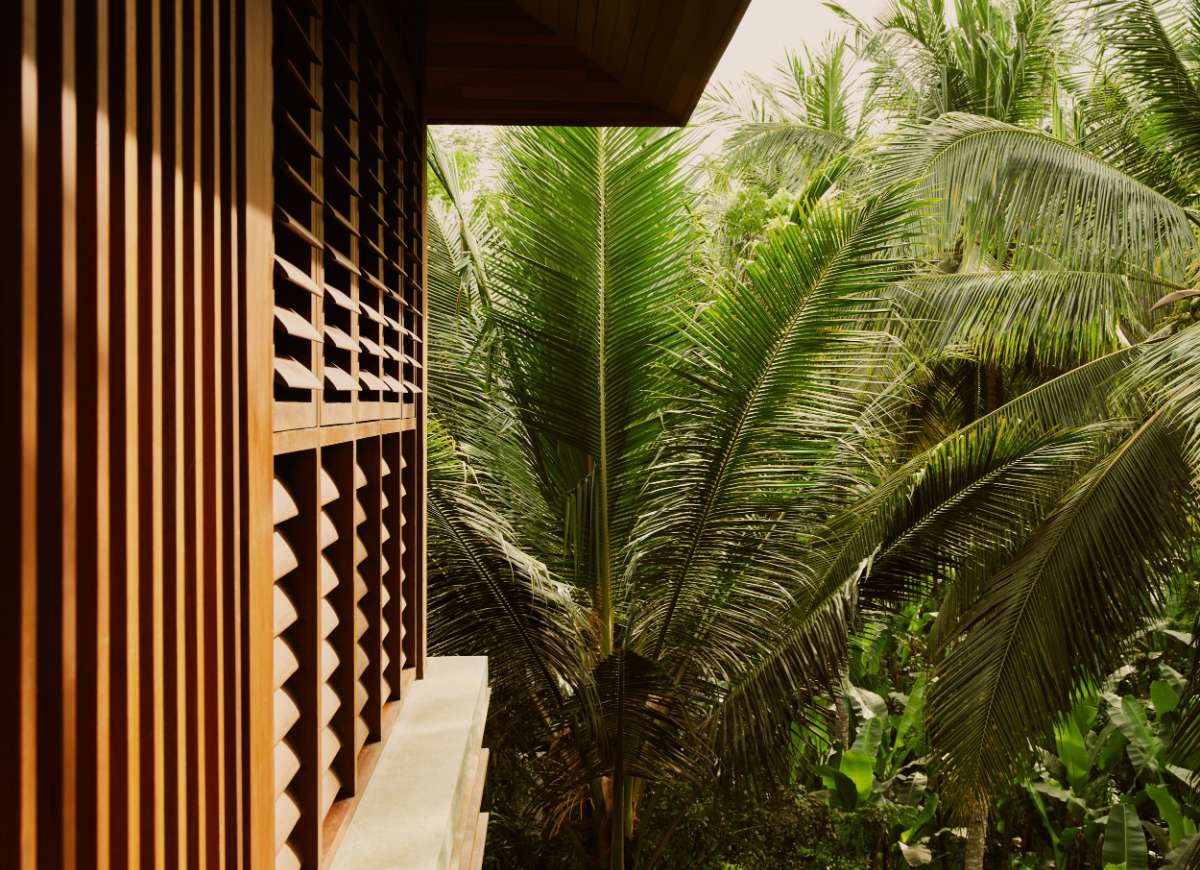
Design inspiration
The design was conceptualised by Bali-based Alexis Dornier and Studio Jencquel, who emphasised the location’s natural features within the construction. Guest accommodations are housed within four treehouse-like towers nestled in the jungle, connected by an elevated walkway that points toward the ocean.
“We wanted to give the feeling of walking in a different world, of resting on a floating ship, elevated and safe, with the wild jungle at your doorstep. Grouped close together, the towers form a quasi-village in the trees, a small floating society,” says Alexis Dornier.
Interiors by Studio Jencquel play to the outside elements. Linen fabrics, lava stone, tropical hardwood, burnt teak and river stones are some of the materials that give a nod to Lost’s surrounding environment, while furniture, lighting, and ceramic tableware were custom-designed by the studio. A variety of Indonesian antiques such as baskets, vases, and statues were collected, and contemporary photography by Indonesian artist Prabowo Prajogio, and British photographer Annie Collinge, decorate the guest spaces.
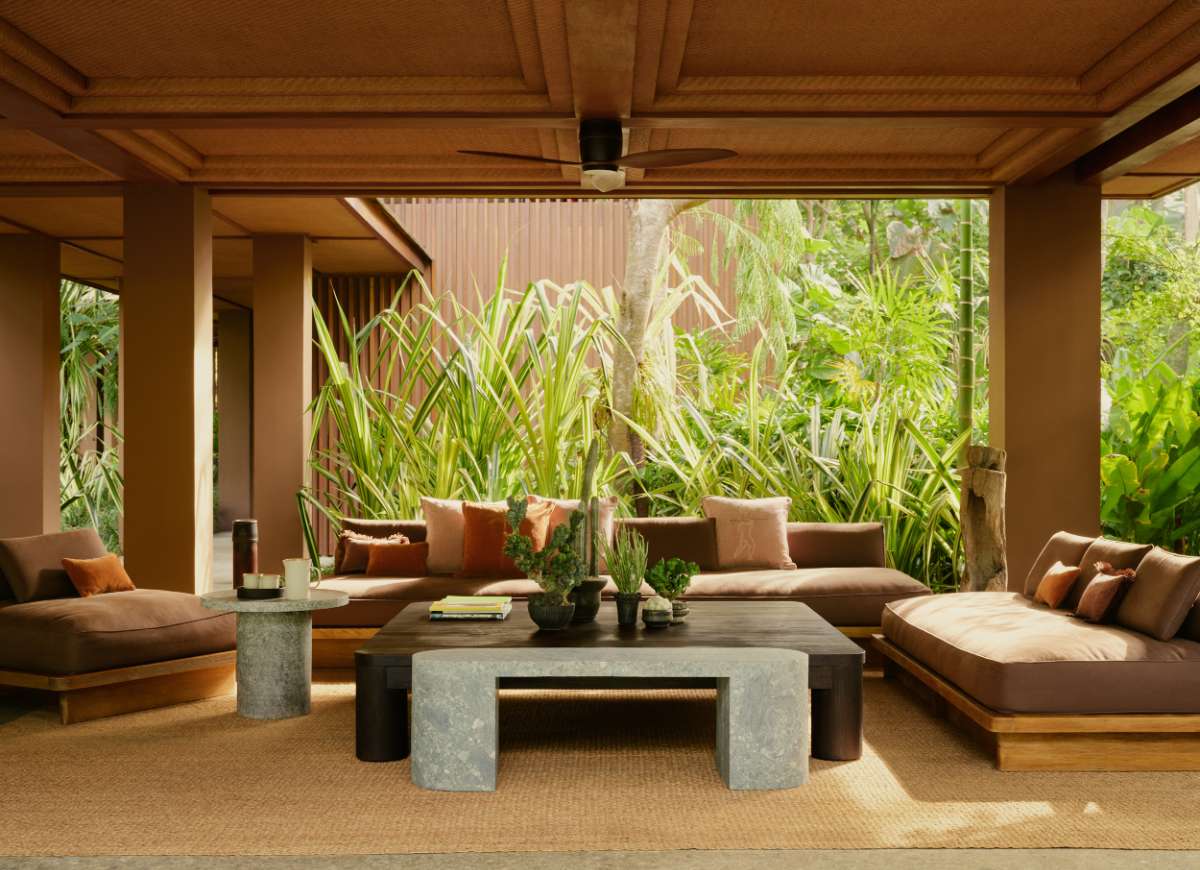
“Lost is designed with great attention to detail, with examples of the traditional contrasted by exaggerations. The predominant material is sustainably sourced wood in various patterns and directions, the floors are covered with Bali green stone, and brass is used as an accent in the whole composition. With Lost we move in a dream world, somewhere between fiction and reality,” adds Dornier.
As if to further encapsulate the experience of departing from reality to enter this dream-like escape, a neon sign installation by German sculptor, Tobias Rehberger, is an unlikely encounter at the entrance to the property.
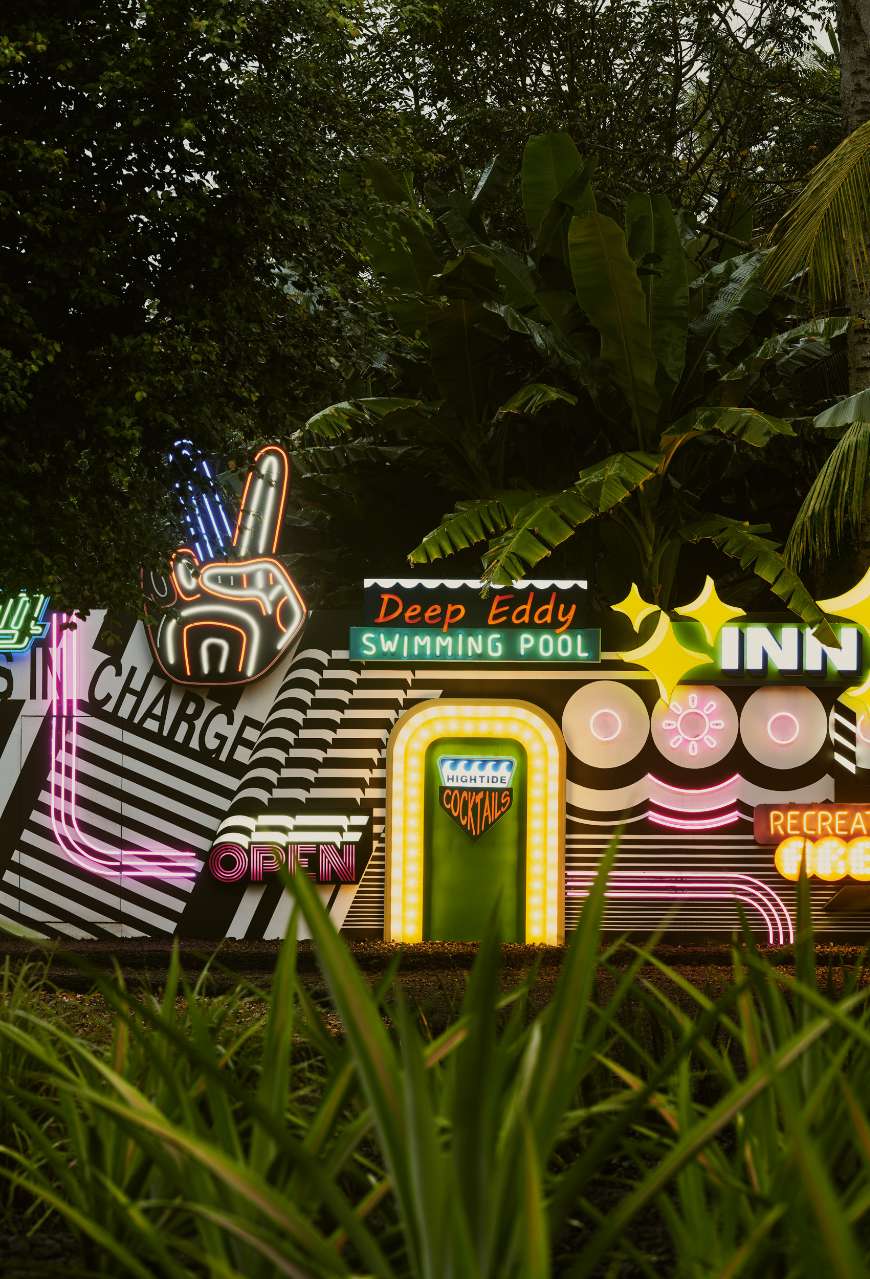
“My installation is intended as a staged transition, a final, almost ritual farewell to the hustle and bustle that visitors can literally leave behind when they discover the hidden entrance and step through the secret opening in the wall into the tranquil paradise of Lost Lindenberg,” says Rehberger.
The grounds extend this narrative, with landscaping by Studio Jencquel that takes guests on a journey from the entrance through tropical forest and the raised pathway connecting the towers, to the black lava sands of the beach.
There are spaces for guests to meditate and an enclosed garden for listening to and reading poetry by Artur Becker. Numerous plant species include heliconias, ferns, Bodhi trees, banana trees, Banyan trees, Majapahit trees, Baobab trees, Pule trees, and bromeliads; while a dedicated ‘grasslands’ area near the reception is home to every grass species on Bali, according to Max Jencquel.
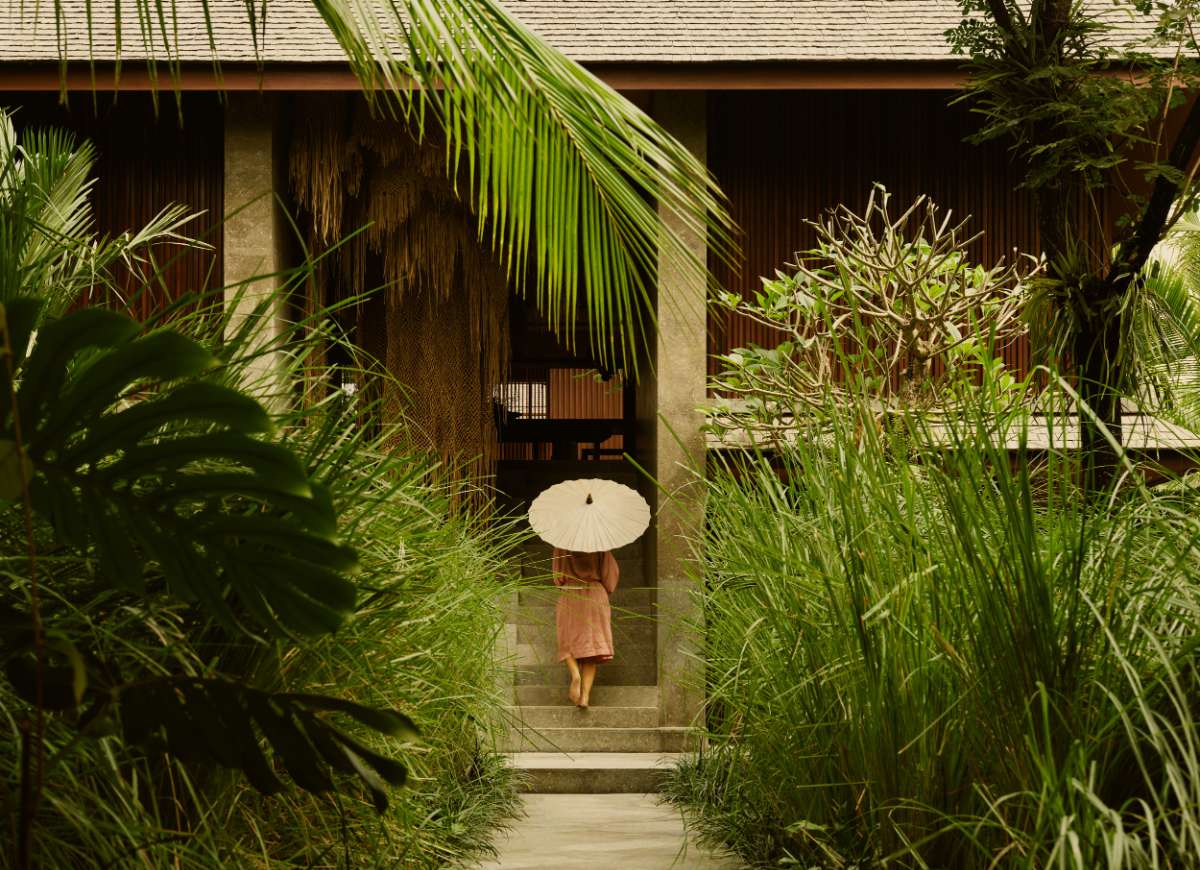
“We wanted to give the feeling of walking in a different world, of resting on a floating ship, elevated and safe, with the wild jungle at your doorstep. Grouped close together, the towers form a quasi-village in the trees, a small floating society,” says architect Alexis Dornier.
Sustainability
A deep connection to the environment extends to Lost’s daily operations. Solar panels supply energy, while fruits and vegetables from the onsite permaculture are used in the restaurant, which is plant-based. Toiletries are sourced from regional, fair suppliers.
Lost Bunch is the property’s community initiative that aims to support, encourage, and provide new opportunities for children and young adults in Medewi. The educational programme combines surfing lessons with classes in subjects like English, sustainability, and hospitality.
Staying here
Lost Lindenberg is in the small village of Pekutatan on Bali’s west coast, about two hours from the capital of Denpasar and a short drive to the famed Medewi Surf Point, where keen surfers can experience Bali’s longest wave.
Eight 45m2 suites are available in two categories — two Ocean Panorama suites that look directly out to the ocean, or six Jungle Panorama suites, which have views of the jungle and temples.
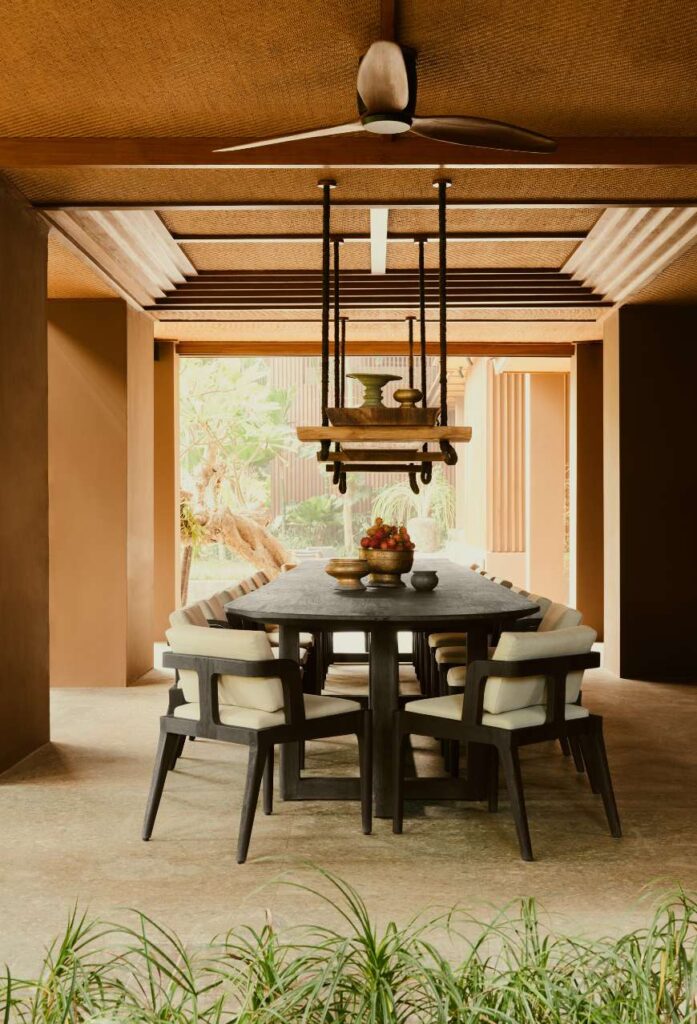
Dining is at a seven-metre-long communal table, where guests can converse over plant-based cuisine made using local and seasonal ingredients. A poolside bar offers classic long drinks, local kombuchas, and seasonal cocktails.
The resort has its own beach and surfing sessions are included in the room rate, with boards made in-house, in collaboration with Pyzel Surfboards, available for hire. Other activities include yoga, spa treatments, river hikes, and diving trips.
Rates start from US$350 (about A$517) per night, including breakfast and surf lessons.
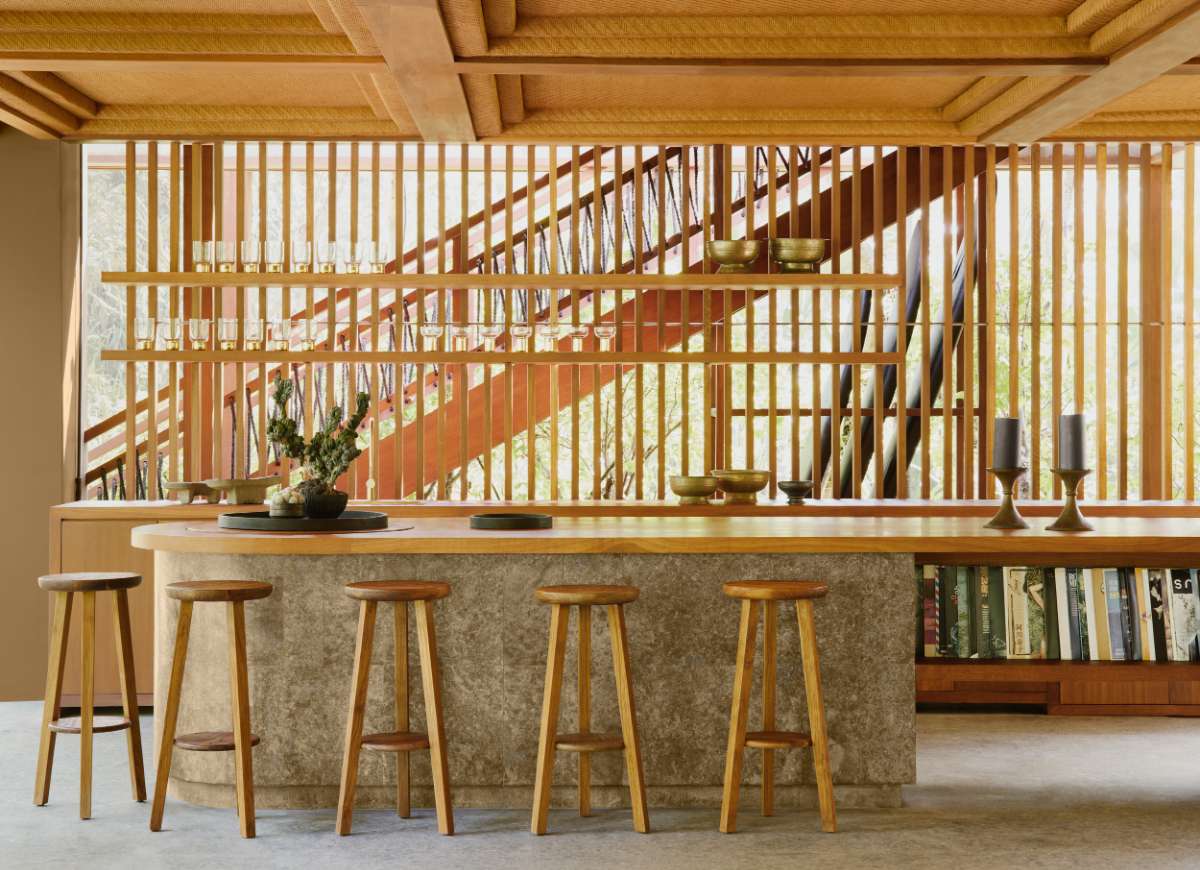
Photography credit for all images: Robert Rieger
Latest Articles
Don't miss the latest from Luxury Travel
